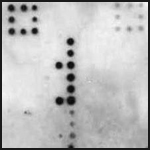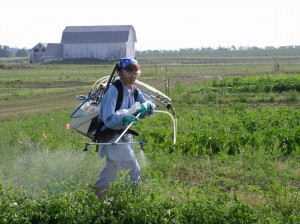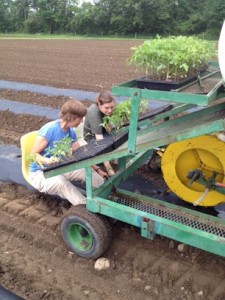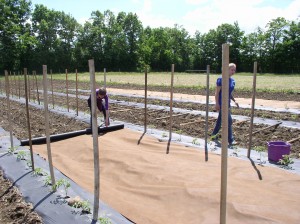
Overview
The Smart Lab studies diseases of vegetable crops in the lab, greenhouse, and field, focusing on population genetics, detection, and disease management. Rapid and accurate detection and identification of plant pathogens, as well as understanding the pathogen’s biology, is key for successful management of plant diseases. For more information on our projects on oomycete, bacterial, and fungal pathogens, see the dedicated pages for each.
We use modern genomic techniques to analyze pathogen populations and characterize genotypic variation, infer dispersal patterns throughout the state, and understand pathogen evolution on a small time scale. We have investigated new protocols for in-field detection assays of bacterial and oomycete pathogens and for aerial detection of several oomycete species. Because some important plant (and human) pathogens can be spread through irrigation water, we are also studying ways to detect and manage pathogens in surface water.
Field trials
Once a pathogen is detected, it’s important to provide research-based recommendations on how to manage it. To complement lab and greenhouse work, each year we conduct field trials with various vegetable crops including cabbage, cauliflower, peppers, tomatoes, cucumbers, and squash. These field experiments are often a follow-up to greenhouse experiments and test the efficacy of various disease control products or quantify disease resistance, with plots designed to follow commercial vegetable operation practices. We utilize raised beds with black plastic and drip irrigation and seed rye or use weed cloth between rows. Two of our fields (about 4 acres) are managed using organic practices to allow trials of organic products.




